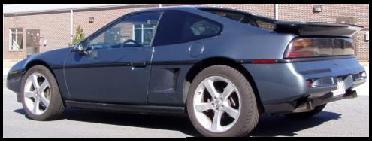Not that I agree with it 100%, but here is an answer direct from the horse's (
Tire Rack's) mouth:
| | | quote |
Why Shop by Vehicle for Wheels?
Experience indicates that searching by wheel size, offset and/or bolt pattern alone are not specific enough criteria to ensure an exact fitment.
Attention to detail prevents vibration, wheel/tire interference and unbalanced handling. A vehicle's critical components are measured with sophisticated electronic tools to allow our fitment engineers the ability to create extremely accurate drawings of these parts. Similar drawings of the wheels are also created and then Computer Aided Design (CAD) programs match the wheels to the vehicles. Using these electronic tools numerous critical areas are verified to ensure the fit is within our standards before a wheel can be matched to a vehicle. Wheel size, offset and bolt pattern are measured and each wheel's style/spoke design, the vehicle's brake caliper shape and many other variables are checked for proper clearance and fit. Because of the numerous wheel/vehicle combinations, this often means each wheel has to be individually tested on the vehicle either manually or electronically using the CAD data.
Other items we measure or verify:
* Bolt Pattern
* Centerbore Diameter
* Hub Diameter
* Load Capacity
* Lug Hardware
* Suspension Components Clearance
|
|
Translation: We had so many returns and complaints due to know-it-all customers buying wheels that wouldn't fit or were dangerous for their cars that we felt that we had to resort to this. Note the
Load Capacity parameter, which has real safety implications but is usually ignored by aftermarket wheel purchasers.
I agree that there should be some convenient way for knowledgeable customers (as well as those who are willing to assume the risk of a wrong choice) to access wheels by specification rather than by application.
[This message has been edited by Marvin McInnis (edited 03-28-2011).]




















